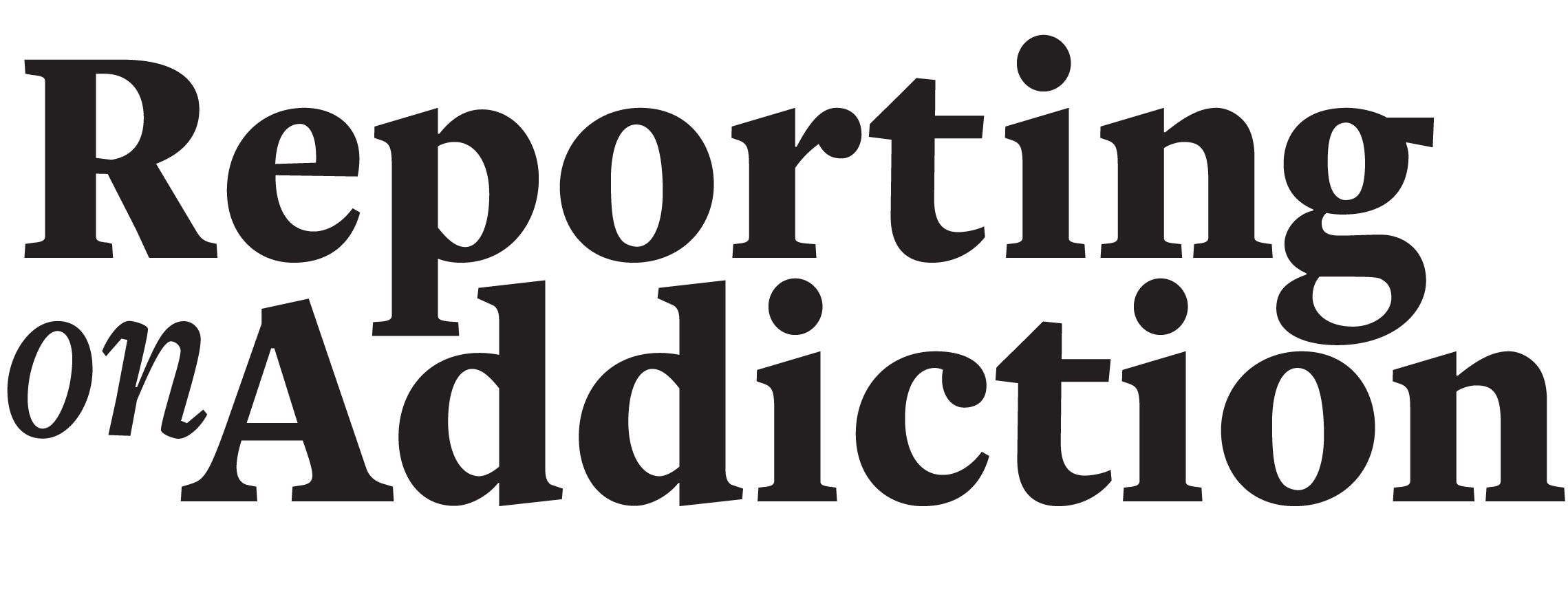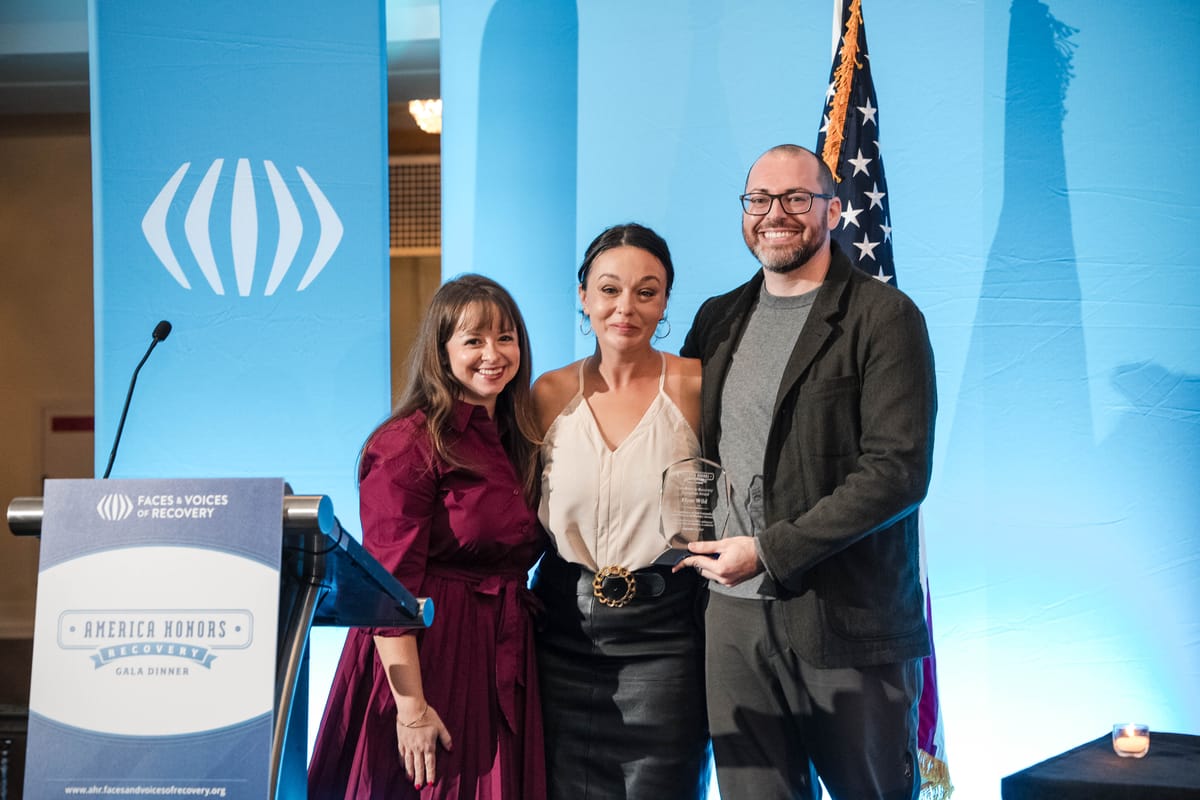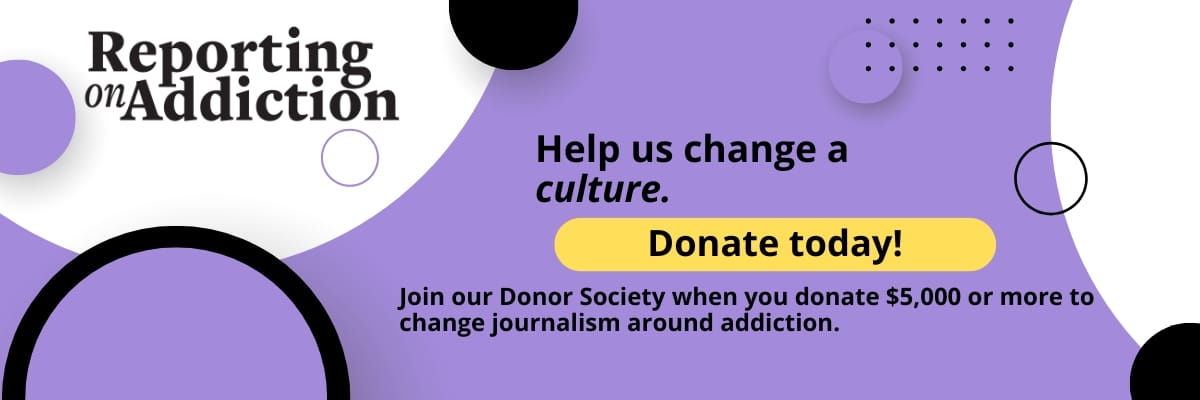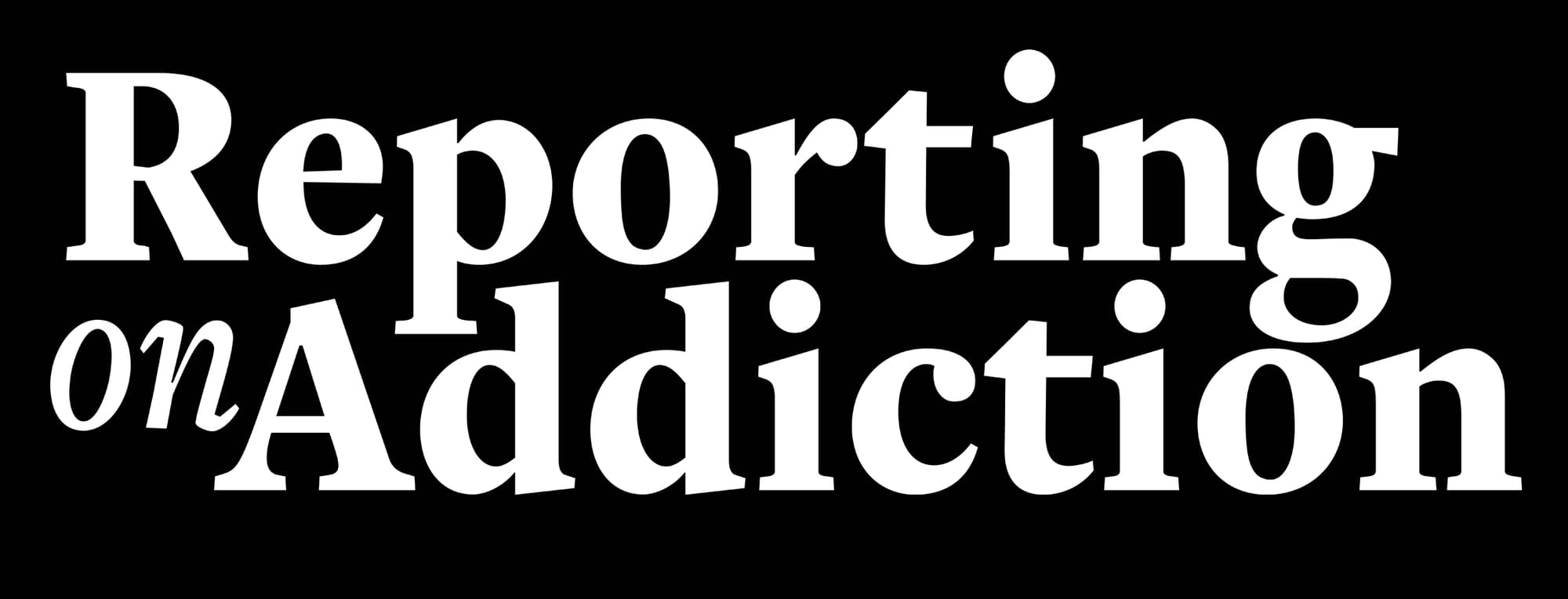RoA Quarterly Update Q3 2024

2024 has been treating us well at Reporting on Addiction. In this quarterly update, we want to highlight some of our most important work for you as we continue making an impact on how journalism about addiction, treatment and recovery is created.
First, a new fundraising opportunity to help support our mission.
Triple the Impact of Your Support for Reporting on Addiction
There is a unique opportunity to stretch your dollar further this year. We’re building up a community match bank ahead of our November 1 fundraising launch. NewsMatch is a fundraising effort in partnership with 100 Days in Appalachia that matches your donations to our effort. Your donations + NewsMatch = triple the impact!
If you are someone in a position to help, your contribution will encourage others to give and provide us with a strong start toward our end-of-year goals. Help us meet our goal of $1,000 by Thursday, Oct. 31.
Thank you for being a part of our community, whether or not you're in a position to give right now. We’re fortunate to have your support as we continue our work to inform and educate on addiction and recovery.
New Resources for Journalists: Enhancing Security, Empathy, and Expert Commentary
We are excited to introduce three powerful new resources aimed at supporting journalists, journalism educators and addiction experts in their vital work. These resources — developed from feedback from our partners — are designed to help tackle sensitive and challenging subjects like addiction, trauma and recovery.
Here’s a closer look at our resources, launched during National Recovery Month:
1. Digital Security Toolkit for Journalists
This comprehensive toolkit provides essential guidance for journalists on how to protect themselves and their sources in an increasingly digital landscape. It includes:
- An easy-to-follow checklist to ensure online safety and safeguard sensitive information.
- Best practices and tool recommendations for secure communication, data encryption, and threat assessment.
- Tips for interacting with whistleblowers and other at-risk sources, offering practical advice on maintaining confidentiality and ethical responsibility.
This resource is particularly crucial for journalists working on high-risk stories involving vulnerable individuals or controversial issues, where protecting both personal and source security is paramount. Find it here.

2. Trauma-Informed and Empathy-Based Reporting Toolkit
This toolkit focuses on fostering a compassionate and ethical approach to interviewing and reporting, especially when engaging with vulnerable or marginalized communities. It includes:
- A checklist for trauma-informed reporting, offering a step-by-step guide to navigating sensitive conversations.
- Detailed communication guides that emphasize empathetic listening, building trust, and ensuring dignity in storytelling.
- Personal bias considerations, encouraging journalists to reflect on their own assumptions in order to approach stories with fairness and sensitivity.
With this resource, reporters are better equipped to tell impactful stories without causing harm or retraumatizing the people they interview. Find it here.

To hear directly from journalists and experts about trauma-informed and empathy-based reporting techniques, watch our recent conversation with Maine Monitor reporter Emily Bader and parenting and trauma trainer and lived experience advocate Latisha Goullaud.
3. Op-Ed Explainer for Experts
This toolkit is designed to assist experts in fields like addiction science, medicine and social work, just to name a few, in amplifying their voices through opinion pieces to be published by news outlets. It offers:
- A clear process for preparing, pitching, and writing op-eds tailored for news outlets.
- Guidance on identifying timely, relevant topics that align with public discourse.
- Tips for crafting compelling, concise arguments that can reach and resonate with a wide audience.
This resource helps experts translate their knowledge into accessible, impactful contributions to public debates, shaping narratives around addiction, treatment, and recovery in ways that inform and educate the public. Find it here.

Together, these resources provide invaluable support for journalists and experts alike, empowering them to engage more securely, empathetically, and effectively with their audiences and sources. Explore these toolkits on our website and use them to enhance your reporting and outreach efforts.
As always, let us know if there’s a resource that would help you!
Native News Online’s Elyse Wild Honored for Groundbreaking Reporting on Overdose Crisis in Indian Country

Reporting on Addiction partnered with Faces & Voices of Recovery to select the winner of the inaugural Excellence in Recovery Journalism Award during national Recovery Month. Native News Online Senior Editor Elyse Wild was honored at the America Honors Recovery Gala Dinner in Washington, D.C., in September for her impactful reporting on the overdose crisis in Indian Country.
The event, hosted by Faces & Voices of Recovery, recognized over 200 advocates, policymakers and recovery professionals for their efforts to eliminate barriers faced by communities affected by addiction. Wild received the award for her dedication to investigative journalism that sheds light on addiction and recovery with empathy, factual accuracy, and a commitment to challenging stigma.
Wild’s work at Native News Online focuses on health equity in Indian Country, particularly the overdose epidemic and the crisis of Missing and Murdered Indigenous People. Her reporting has been featured in The Guardian, NPR, and McClatchy newspapers, among others. Currently, she is developing a Pulitzer Center-funded series exploring how cultural practices influence addiction treatment in Native communities.
In her acceptance speech, Wild emphasized the groundbreaking work of federally recognized tribes in advancing substance use prevention and harm reduction and urged the audience not to overlook Native communities in the broader recovery efforts.

Celebrating Powerful Stories of Recovery: Four Journalists Shine a Light on Addiction, Treatment, and Hope with Support of RoA Microgrants
This year, we awarded four microgrants to journalists from across the country to cover meaningful addiction, treatment and recovery stories in their communities. If you didn’t catch the final stories in our updates, check them out below!
In June, the Maine Monitor’s Emily Bader published "A place for women in recovery, and their kids,," This article highlights the personal stories of families who have been positively impacted by the work of Safe Harbor - one the only treatment centers in the state that offers care specifically for mothers and allows their children to continue to live with them.
Also in June, Francia Garcia Hernandez published "How A West Side Group Is Helping Prevent Overdose Deaths And Boost Treatment For Substance Use" with Block Club Chicago. Francia follows workers who are distributing naloxone, fentanyl test strips and treatment information in neighborhoods with some of the city's highest rates of overdose emergency calls.
In May, North Carolina State graduate student Tyenesha McCullers published her story “Pack Recovery Offers Community to Graduate Students in Recovery” in the Nubian Message, NC State’s all-Black student publication. Tyenesha explores the pressure of being a graduate student in a culture that often revolves around drinking, and the support systems in place on their campus for students in recovery.
And in April, KMUW’s Kylie Cameron published “Using their culture to heal, a Native American sobriety group in Wichita gives back.” Kylie tells the story of Prarie Rose Wellbriety, a recovery group in Wichita supporting the local Native American community. Give Kylie’s story a read or, better yet, a listen on KMUW’s website or catch it on Native News Online.
These stories were supported by a one-year fellowship Co-director Ashton Marra received from the Solutions Journalism Network.
Summer 2024 Journalism Educator Cohort Completes Training
This summer, a group of seven journalism educators from across the country completed our free train-the-trainer webinars, gaining valuable tools to improve addiction reporting in their classrooms. Over five virtual sessions, participants explored the latest in evidence-based addiction science and medicine, discussed addiction stigma, and learned how to identify problematic reporting.
The 19 educators who have participated over the past three years of this training are now equipped to guide the next generation of journalists in empathetic and accurate reporting on addiction. Whether they're dedicating entire courses or integrating new strategies into existing curricula, these educators left with adaptable teaching materials ready for use in the classroom.
Participants received:
- A deeper understanding of current addiction science and stigma
- Techniques for addressing stigma and misinformation in classroom discussions
- Ready-to-use teaching materials, including lectures and assignments
- Personalized assistance in adapting the materials to fit their courses
- A supportive community of educators and journalists teaching difficult topics
We look forward to the positive impact this training will have on future reporting and the ongoing efforts to destigmatize addiction. Stay tuned for updates on how to join our next cohort or fill out this interest form for Summer 2025!
And last, but certainly not least, we want to welcome Rachel Molenda to the Reporting on Addiction team! Rachel is assisting RoA in year-end fundraising efforts and the development of additional toolkits and how-to resources for journalists, journalism educators, and experts through training and experience. Rachel comes to RoA with more than a decade of experience as a journalist, photo editor and photographer. She is an Appalachian native and a passionate advocate for improving journalism that covers marginalized communities. We’re lucky to have her on our team!
This quarter has been filled with work advancing our mission to improve Reporting on Addiction. And there is more to do!
For the next quarter, we’ll shift our focus to developing more resources as training cools off during the election season. (Support your local newsrooms!) We will pick up more newsroom training in the new year.
If you need help in the meantime, reach out on Slack or email.
Reporting on Addiction is not possible without your guidance, support and engagement. We appreciate all that you do to spread the word and advocate for our resources to be used in your communities. As always, we’d love to hear from you about what we’re doing or could be doing to make an impact.
And if you have the ability, your financial support can also help us continue this work. Make a tax-deductible gift here today.
Happy Fall!
The Reporting on Addiction team





